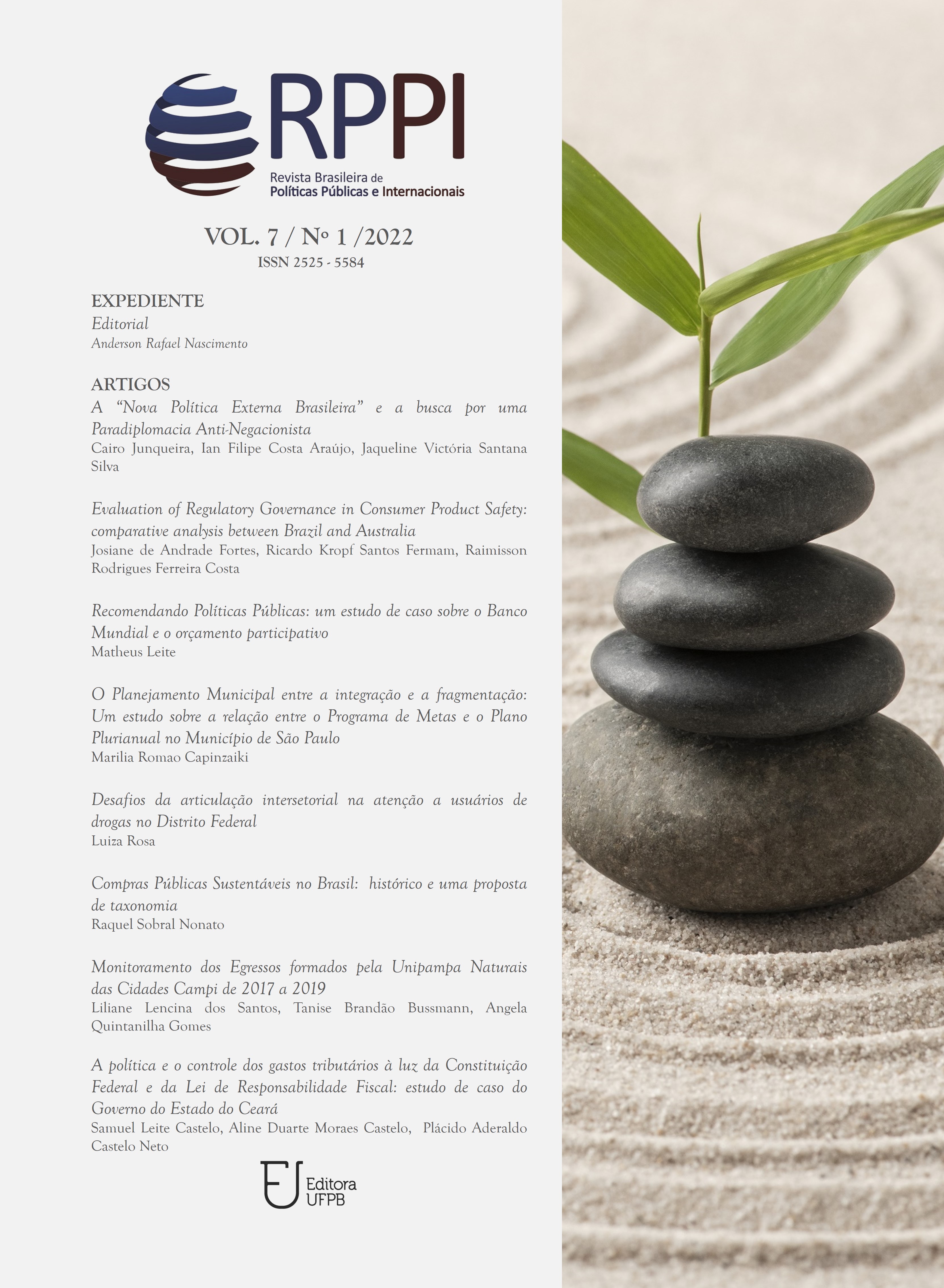O Planejamento Municipal entre a integração e a fragmentação:
Um estudo sobre a relação entre o Programa de Metas e o Plano Plurianual no Município de São Paulo
DOI:
https://doi.org/10.22478/ufpb.2525-5584.2022v7n1.62686Keywords:
public planning, pluriannual plan, goals programAbstract
This article deals with the dilemmas of government planning at the municipal level, specifically the issue of the lack of integration and fragmentation of the various existing planning instruments. For this purpose, we analyze the Pluriannual Plan (PPA) in the Municipality of São Paulo, which ended up incorporating a more budgetary character, comparing it with the Goals Program (PdM), which has a more political and strategic character. Indeed, the theoretical foundation on which the argument is based indicates that government planning is a political process, which takes place in an environment where different interests and actors coexist. For this reason, we argue that the PdM, having its own obligation linked to the elective mandate of the mayor, ended up gaining precedence over other mandatory preparation planning instruments, such as the PPA, in the municipalities in which it became a legal obligation. The first section of the article presents, in general, the context in which the PdM was instituted in the Municipality of São Paulo and its performance since then. The second section introduces and discusses the PPA, focusing on its emphasis on the budgetary aspect of planning. Finally, the third section discusses the compatibility between the two instruments, addressing the issue of fragmentation of municipal planning and its monitoring, with consequences for social control. Finally, the last section presents the final results.
Downloads
Downloads
Published
Issue
Section
License
Copyright (c) 2022 Marilia Romao Capinzaiki

This work is licensed under a Creative Commons Attribution 4.0 International License.
Autores que publicam nesta revista concordam com os seguintes termos:- Autores mantém os direitos autorais e concedem à revista o direito de primeira publicação, com o trabalho simultaneamente licenciado sob a Licença Creative Commons Attribution que permite o compartilhamento do trabalho com reconhecimento da autoria e publicação inicial nesta revista.
- Autores têm autorização para assumir contratos adicionais separadamente, para distribuição não-exclusiva da versão do trabalho publicada nesta revista (ex.: publicar em repositório institucional ou como capítulo de livro), com reconhecimento de autoria e publicação inicial nesta revista.
- Autores têm permissão e são estimulados a publicar e distribuir seu trabalho online (ex.: em repositórios institucionais ou na sua página pessoal) a qualquer ponto antes ou durante o processo editorial, já que isso pode gerar alterações produtivas, bem como aumentar o impacto e a citação do trabalho publicado (Veja O Efeito do Acesso Livre).




_.jpg)






.png)


.jpg)
_.png)
